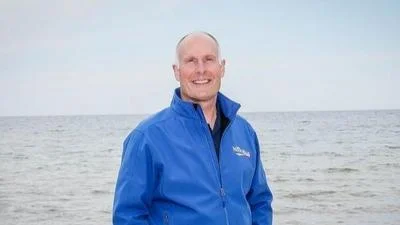Energy Subcommittee Republican Leader Fred Upton (R-MI) delivered opening remarks at today’s Energy Subcommittee hearing on hydropower.
Excerpts and highlights from his prepared remarks:
HYDROPOWER’S SUCCESS
“I look forward to today’s hearing to explore opportunities to improve the permitting process for hydropower facilities.
“It has been almost four years since the Subcommittee held a hearing on FERC licensing reform, and a lot has occurred since then.
“Leader Rodgers’ bill, the Hydropower Modernization Act of 2017, passed the House with strong bipartisan support.
“Several Energy and Commerce hydropower bills became law as part of the America’s Water Infrastructure Act of 2018, including Dr. Bucshon and Mr. Griffith’s bills to establish a 2-year licensing process for non-powered dams and closed-loop pumped storage projects, and Mr. Hudson’s bill to expedite the approval for conduit hydropower.
“These recent accomplishments are a testament to the importance of hydropower as part of our ‘all-of-the-above’ approach to energy policy.
“Republicans are eager to get to work to conduct oversight of the laws we passed in 2018 and pick up where we left off with Leader Rodger’s comprehensive hydropower reform legislation that passed the House.”
THE COSTS OF MORE REGULATIONS
“The regulatory environment for hydropower has become increasingly challenging.
“Licensing new hydropower facilities and relicensing existing facilities requires extensive consultation with multiple Federal, State, and local government entities.
“The process takes years and costs tens of millions of dollars.
“While project developers can typically site and construct wind, solar, and natural gas generation in 2-3 years or less, it can sometimes take 10 years or longer to relicense existing dams and more complex hydropower projects.
“In many ways, licensing challenges are limiting hydropower’s potential.
“Hydropower is among the cleanest, most reliable, and most affordable energy sources in America.
“Hydropower is baseload power, available any time you need it – even when the sun is not shining, and the wind stops blowing.
“Not many people think of hydropower as an emerging technology, but hydropower is going to play an even bigger role in the next generation grid.
“Conventional hydropower and pumped storage hydropower can help stabilize the grid to integrate weather-dependent wind and solar, and batteries.
“Hydropower can also provide ‘black-start’ capabilities so we can restart the grid in the event of a large-scale emergency power outage.
“According to the Department of Energy, hydropower generation could expand by an additional 50% by 2050; however, Congress must act.
“Both the existing hydropower fleet and new hydro generation projects are at risk due to the inefficient relicensing process and because some of the more radical environmental groups have begun to advocate for the removal of dams.
“Hydropower is also disadvantaged by State laws that fail to recognize the clean and renewable attributes of hydro and by the Federal tax code that favors wind, solar, and batteries.”
REFORMING THE LICENSING PROCESS
“If one thing is clear, the antiquated FERC licensing process for hydro is a significant barrier to expanding hydropower production.
“Congress must strengthen the lead agency role of FERC and hold coordinating agencies to strict timelines.
“Disputes must be resolved quickly and decisively, so permits do not get held up in court for years.
“This Committee should start by conducting oversight of the 2-year licensing programs for pumped-storage and non-powered dams that we passed into law.
“Our understanding is that these programs have failed to meet the objectives that Congress laid out – if this is true, we should think about ways to amend the programs.
“I am pleased to see there is broad interest in an expedited licensing program for hydropower, and I look forward to hearing from the supporters of the Uncommon Dialogue to understand how the reforms will improve the process.”
CONCERNS WITH THE UNCOMMON DIALOGUE’S PROPOSAL
“I have some concerns that the Uncommon Dialogue proposal will expand the environmental review with an oversized focus on climate change and mitigating past-effects that may have occurred decades ago when an original dam was constructed.
“I also have concerns with the Uncommon Dialogue’s embracing of off-site environmental mitigation and dam removal, which can be a slippery slope.
“There are also questions about whether the expanded interagency and tribal consultations will expedite the process, or whether it could lead to additional litigation and delay.
“Mr. Chairman, I want to thank you for calling today’s hearing. I hope this is the start of what will continue our strong bipartisan track record on hydropower permitting reform.”
Original source can be found here.









